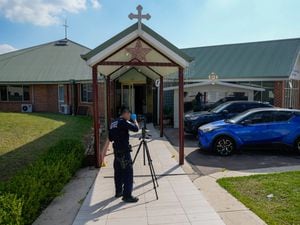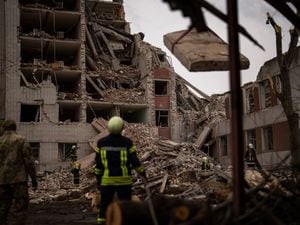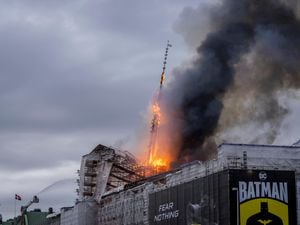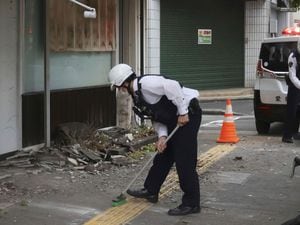Troops deployed to Sri Lankan capital amid clashes during protests over crisis
The Indian Ocean island nation is on the brink of bankruptcy and has suspended payments on its foreign loans.
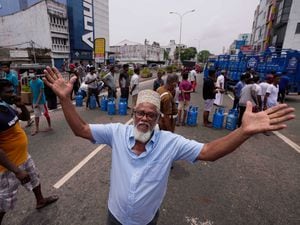
Sri Lanka has deployed troops to its capital after government supporters attacked protesters camped outside the President and prime minister’s offices.
It comes as trade unions begin a “week of protests” demanding the government change and its President step down over the country’s worst economic crisis in memory.
The Indian Ocean island nation is on the brink of bankruptcy and has suspended payments on its foreign loans.
Its financial woes have brought on a political crisis, with the government facing widespread protests and a no-confidence motion in Parliament.
Supporters of prime minister Mahinda Rajapaksa rallied inside his office earlier on Monday, urging him to ignore the protesters’ demands to step down and requesting he remain in office.
After the meeting, they went to the front of the office, where protesters have been demonstrating for several days.
Local television channel Sirasa showed pro-government supporters attacking protesters with clubs and iron bars and demolishing and later burning down their tents.
Protesters made accusations on Sirasa TV that police did not intervene to prevent the attack, despite using tear gas and water cannons on protesters as recently as Friday.
At the main hospital in the capital Colombo, 23 wounded people have been admitted and their condition is not critical, an official said on condition of anonymity as she is not authorised to speak to the media.
The attack comes as protesters mark their 31st day outside the President’s and prime minister’s offices.
They have been demanding that the President Gotabaya Rajapaksa; the prime minister, who is Gotabaya’s older brother; and other powerful Rajapaksa family members quit.
Similar protests have spread to other locations, with people setting up camps opposite the prime minister’s residence and in other towns across the country.

So far, the Rajapaksa brothers have resisted calls to resign, though three Rajapaksas out of the five who were politicians stepped down from their Cabinet posts in April.
Trade unions have called for protests throughout this week, trade union activist Saman Rathnapriya said, and more than 1,000 unions representing health, port, education, and other key service sectors have joined the “week of protests” movement.
He said that, during the week, the workers will stage demonstrations at their workplaces across the country.
At the end of the week, they will launch a huge march up to Parliament, demanding the President’s removal and a new government.
For several months, Sri Lankans have endured long queues to buy fuel, cooking gas, food and medicine, most of which come from abroad.
Shortages of hard currency have also hindered imports of raw materials for manufacturing and worsened inflation, which surged to 18.7% in March.
People blocked main roads to demand gas and fuel.
On Sunday, local television channel Hiru showed people in some areas fighting over fuel.

Sri Lanka was due to pay £5.7 billion of its foreign debt this year out of nearly £20.3 billion it must pay by 2026.
Its total foreign debt is £41.5 billion.
Sri Lanka’s finance minister announced earlier this week that the country’s usable foreign reserves have plummeted below £40.7 million.
As oil prices soar during the Russia-Ukraine conflict, Sri Lanka’s fuel stocks are running out.
Authorities have announced country-wide power cuts will increase to about four a day because they cannot supply enough fuel to power stations.
Protesters have crowded the streets since March, maintaining that Mr Rajapaksa and his family — who have dominated nearly every aspect of life in Sri Lanka for most of the last 20 years — are responsible for the crisis.
On Friday, Mr Rajapaksa declared a state of emergency, which empowers him to authorise detentions, property seizure and search of any premises.
He can also change or suspend any law in the interests of public security and for the maintenance of essential supplies.
Diplomats and rights groups have expressed concern over the move.
Sri Lanka has been holding talks with the International Monetary Fund to get an immediate funding facility as well as a long-term rescue plan but was told its progress would depend on negotiations on debt restructuring with creditors.
Any long-term plan would take at least six months to get underway.

